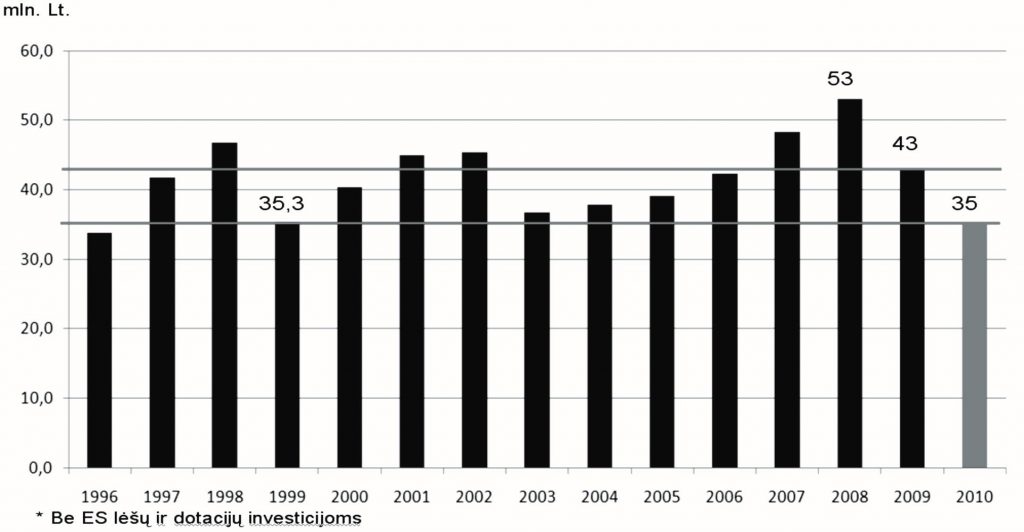News media receive income from a multitude of sources such as advertising and sponsoring, and a few media receive public donations (Bernardinai.lt). In the case of the public service broadcaster, close to 40 % of the funding comes from advertising, while the rest comes through state allocations.
Although program sponsoring is not a new practice in the Lithuanian media (media law has a special chapter on how this type of advertising is regulated, that advertising is forbidden in news programs and restrictions apply in other programs), with the media crisis it has taken a different shape. normally, sponsorships are indicated clearly in texts and TV programs, but, as reported in different studies (TILS 2007; Jastramskis 2009), hidden advertising is often found in the mass media (in spite of the fact that media companies are fined for such practice and all cases become public in the media)9. It is necessary to mention here that some news media have written rules to indicate that journalistic work was funded through external sources. Another group of media companies also announce their policies on the Internet (that they support quality and high standards of professional journalism), mark advertising and audit circulation.
An exceptional case in program sponsoring discussion is linked to reporting about EU-funded projects. The EU parliament members do fund programs on radio, sections on European news are available in different news portals (funded through the European Parliament members or the European Commission Representation in Lithuania), and TV and print media also receive a significant amount of funding by giving visibility to EU-supported projects in science, education, transport or agriculture. This can certainly be treated as a chance to bring new (European) themes into the public agenda by raising public awareness on important issues; yet, in most cases, the news presented as European news lacks the essential professionalism requirements (news value, critical analysis, sufficient background information) and their presentation style resembles PR writing. Hence, the overall practice is considered to be professionally degrading (nevinskaitė 2008). one respondent in our study said that their company is taking part in EU reporting because they have won a competition from the Ministry of Finance to write about EU-funding and that their journalists will write about these projects, but will uphold journalistic standards and indicate the source of funding (and also make this information free for other news media).
In addition to what has been discussed above about potential external pressures on the media, the situation surrounding funding of the public service broadcaster needs very close consideration. Despite the continual requirements to establish clear and transparent procedures for LRT funding, the government has failed to develop an adequate long-term funding program, thus the broadcaster is still funded on an annual basis. The potential political influence on decision-making regarding budget allocations is the least well-functioning aspect of this practice. With the economic recession, the LRT budget for 2010 has dropped to the levels of 1996, which is a severe drop compared to the budgets of other public institutions, which were not cut so harshly (see Figure 1).
Figure 1. Budget allocations to LRT, in million Litas

Source: Annual Report of LRT 2010.
It needs to be mentioned here that the Lithuanian public service broadcaster is among the least well-funded of the publicly funded broadcasters in Europe.
